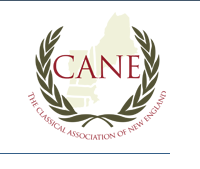Publication Date
5-14-2021
Abstract
Previous scholarship on Virginia Woolf’s classicism has acknowledged her debt to Vergil primarily in the context of the Eclogues or Georgics, and her debt to classical epic as a genre rarely and sparsely. Tremper (1992) and Tudeau-Clayton (2006) have both suggested a reading of “The Lighthouse,” the third part of To the Lighthouse, as an example of modernist epic. This paper, conversely, proposes that the novel in its entirety functions as a satirical critique of epic, specifically of Vergil’s Aeneid, with the goal of demonstrating the pitfalls of epic ideology as it impacted English society during the First World War.
First Page
97
Last Page
102
Recommended Citation
Pyne-Jaeger, Kit
(2021)
"“Women Must Weep—Or Unite Against War”: Virginia Woolf’s Feminist Critique of Classical Epic in To the Lighthouse,"
New England Classical Journal: Vol. 48
:
Iss.
1
, 97-102.
Keywords
Virginia Woolf, Vergil, epic, satire, pacifism, reception, feminism, Aeneid, underworld

